I Spit on Your Grave: Ultimate Collector's Edition
If you were to ask someone 'What is a 'video nasty'?', they will probably tell you that it was a film banned by the DPP in 1984 and come up with titles like SS Experiment Camp, Cannibal Holocaust and I Spit on Your Grave. All of these films have become notorious because of their extreme content and are almost synonymous with the Tory government's move to clamp down on the home entertainment industry in the early 1980s. Of the original list of 74 titles, many have been rehabilitated and are rightfully recognised as classic horror movies from great directors. Some of them, like I Spit on Your Grave, are still extremely problematic and still aren't available uncut in the UK.
101 Films made the rather brave move of securing the rights to Meir Zarchi's infamous shocker and putting it before the BBFC in the hope, however slim, of releasing the title uncut for the very first time on the shores. It seems that things at Soho Square have moved on in the past 25 years or so, but not far enough and the BBFC still demanded 2 minutes and 54 seconds of cuts to comply with their own policies and guidelines and the Video Recordings Act (1984). Even with these cuts it is a big step forward from the last time that the film came before the BBFC when it was pre-cut by the distributor and even then had a further 41 seconds removed but, if you look back to 2001, the BBFC demanded over seven minutes of cuts resulting in many close-ups of a tree during the most serious rape scene.
Anyway, what is the film about? It follows a newspaper journalist, Jennifer Hill, from New York City who drives three hours to a cabin that she has rented in order to spend the summer writing a novel. Arriving at the gas station and asking how far it is to the cabin, she attracts the attention of the gas station attendant and, having arrived and ordered groceries, endears herself to the rather simple delivery boy, Matthew.
Taking Jennifer's dress sense and her comfort to sunbathe in a bikini as some sort of open invitation for unsolicited sexual advances, two men in a speedboat drive past Jennifer, who is sunbathing in a boat, and pull her along the river to a deserted spot near the end. Letting her out and get away, they then hunt her down, strip her and pin her to the floor so that Matthew can rape her and lose his virginity. When Matthew doesn't want any part in this, the others decide not to let a good situation go to waste and, in a series of long, brutal and dehumanising scenes, rape her several times in different locations, including following her back to her house in a sequence that goes on for over 20 minutes (not 45 minutes as claimed by Kim Newman in Nightmare Movies).
As they don't want to leave her alive to testify against them or make trouble, the stronger members of the group persuade Matthew to return to the house and stab her through the heart. Bullied, coerced and terrified of his peers, Matthew heads into the chalet with every intention of going through with the murder but, once he sees the state of Jennifer, simply can't do what is expected of him so wipes some of her blood on the blade and returns outside where he tells his friends that he has done as they asked.
As the saying goes, hell hath no fury like a woman scorned and, when she has been brutalised, humiliated and gang raped yet maintains an inner strength, you really should look out for vengeance but that's not what these guys do and, when they discover that she wasn't killed, the first thing that they do is beat up Matthew. Starting with the simple delivery boy, Jennifer begins a cold and calculated revenge spree against those who have harmed her.
If it weren't for Roger Ebert, this would have drifted into insignificance along with so many of the other cheap films which played on 42nd Street in the 1970s. The fact that such a prominent and respected film critic chose to write about the film in the Chicago Sun Times, describing it as "a vile bag of garbage" and a movie that is "so sick, reprehensible and contemptible that I can hardly believe it's playing in respectable theatres." It has since gone on to split opinion right down the middle with some people detesting the film and everything that stands for whereas others, like the academic Carol Clover, recognising that there is something extremely important in its gender politics and that it is a film worthy of academic scrutiny. Clover's analysis of I Spit on Your Grave in her book Men, Women and Chain Saws: Gender in the Modern Horror Film is an extraordinarily reasoned piece that shows how important the film is to any discussion of gender politics in the horror films of the 1970s.
One question that tends to be overlooked when it comes to ISOYG is: 'is it any good?' For me, the answer is 'yes' as it has an extraordinary central performance by Camille Keaton, whose portrayal of the journalist that goes through possibly the worst thing that could happen to a woman, is utterly convincing and, even the revenge sequence at the end isn't beyond the realms of possibility. Although Zarchi's treatment of the Matthew character is a little heavy-handed and Richard Pace's acting almost makes him appear as a comedic character rather than someone with severe learning difficulties or an extremely low IQ, the character does seem to work within the slightly caricatured nature of this portrayal of 'small town America'. The film is also incredibly competently made and Zarchi obviously has a keen visual eye, sense of space and has written an intelligent and thought provoking screenplay from which to shoot.
As the film was based on a real experience that Zarchi heard about when he was out with his eight-year-old daughter and came across a woman who had just been raped and then saw with his own eyes the rather shabby way she was treated by the police, it certainly has an authenticity that makes a great deal of the film extremely uncomfortable viewing and if you feel sick to your stomach that is probably exactly what Zarchi intended. This isn't a film to titillate or excite but something that almost acts as a trial of endurance or an ordeal which says 'this is what rape is like -- it's brutal, horrible and has absolutely no place in society.'
When Meir Zarchi wrote Day of the Woman (which grindhouse guru Jerry Gross renamed as I Spit on Your Grave), I doubt he could have expected it to still be around all these years later and still be watched and scrutinised in cinemas and houses around the world with people still keen to interview him and even make a high-profile Hollywood remake of what was then considered by some to be a grubby little film with absolutely no artistic merit.
The Disc
Extra Features
The disc has two commentaries tracks which have been ported over from the Elite Entertainment Millennium Edition release and they are both superb tracks. The one with Meir Zarchi is informative, revelatory and interesting as he goes through locations, casting and various aspects of the shoot as well as the reaction to the film and what he intended to say with the movie. The second track is with Joe Bob Briggs, a purveyor of trash cinema and who always seems to provide brilliant commentary tracks about bizarre films about which he knows far more than a psychologically healthy man should! He's is a little more light-hearted than Zarchi's and complements it extremely well looking at different aspects of the film and defending it against any charges of exploitation with all the gravitas and conviction of a barrister.
There is a fairly large problem with the Joe Bob Briggs commentary which, as it has been ported straight over from the uncut (and longer) version of the film, isn't allowed to finish. Because Joe Bob talks right until the end of the credits on the film, this truncated version cuts him off midsentence so you don't actually get to hear his conclusion -- this strikes me as a little sloppy and should really have been checked out before the set was released.
Directed by Calum Waddell (who works a lot with Arrow Video) and made with the other guys at High Rising Productions, the exclusive new interview with Meir Zarchi is introduced by some excellent animation and is a 35 minute chat (in 1080p high definition) with the director who talks about the ideas for the film, when he saw other rape-revenge films that were released at around the same time, how the film was shot, toying with music and his struggle to get the film released. This is a fascinating piece that is well worth watching as there is information here that isn't included in the commentary and Waddell clearly knows which questions to ask.
There is also a variety of other features such as trailers, TV spots, radio spots, galleries and pictures from Zarchi's personal collection that have never been seen in public before and these are all well worth looking through. Additionally, there is a booklet in PDF form which is also well worth a look as it contains newspaper clippings from the 1980s, letters from academics and 'concerned citizens' and rounds off with two fascinating essays by two academics.
There is a piece from DVD Monthly which is a lengthy (81 minutes) telephone interview with Meir Zarchi conducted from across the Atlantic which is a fascinating listen though you really have to bear with the sound quality which is (understandably) far from perfect.
This is one of those 'Combi Packs' containing both the Blu-ray and DVD and, whilst the quality of the DVD is also found wanting, this will suit households that have not yet made the jump to Blu-ray or have different players in different rooms so the person who wants to watch the film will not necessarily have access to the Blu-ray player and may want to watch the extras on the go on a laptop without a Blu-ray player.
It does seem that 101 Films have taken a leaf out of Arrow's book and have included an A2 poster with the original 1978 film poster on one side and the remake on the other and there is a fairly lengthy essay by Waddell about the original film and a Q&A about the remake.
A quick word about the packaging: this is a very handsome looking set although the wording on the front does lead you to believe that it may be an uncut version of the film -- it isn't. It is the most complete version ever released in the UK but it is still cut by over two minutes. Also, I'm not sure who is responsible for proofreading, but they missed a glaring error on the back cover of the sleeve and slipcase which reads "I Spit on You Grave"!
The Picture
I expected this to look far better than I had ever seen it before and with an almost pristine picture that showcases the wonderful location shooting as well as adding clarity to the more dimly lit scenes. It was therefore slightly disappointing to see how soft and grainy the 1080i picture is with frequent instances of interlacing. I will freely admit that there would be something amiss if I Spit on Your Grave looks like a modern blockbuster as there is something about the low budget aesthetic that suits the subject material and really gives the impression that it is a film that is far from polished and shot with a small budget.
However, as this was shot on 35mm film, there really should be no excuse for the picture being as soft, grainy and with such poor contrast levels as is evidenced here.
One of the aspects that I was most interested in was just how 101 Films dealt with the cuts demanded of them by the BBFC and how they would edit around the cut scenes so they wouldn't seem ridiculously butchered. Although what they did is commendable and far better than the first version of the film I saw which has frequent close-ups of a tree during the 'rock rape' scene, the introduction of slow motion and increasing numbers of close-ups during the more contentious sequences just draws attention to the fact that parts have been cut out which has tried to be disguised.
The Sound
Just as with the picture, I expected the sound to be sharp and clear with crisp dialogue so was surprised to find the soundtracks (all three of them from the Dolby Digital 1.0 mono to the 2.0 stereo and DTS-HD Master Audio 5.1) to be slightly muddy with dialogue that is far from crystal clear.
There really isn't any need for the surround channels as they are very rarely used and only put out atmospherics such as insects chirping, wind blowing through the trees and leaves rustling. These aren't really necessary to build tension or suspense as this isn't that sort of film, though I did find that the DTS-HD Master Audio track was slightly clearer than the other two options and even seemed to improve as the film went on and, by the end, when you have the speedboat engine snarling away for minutes on end, I did find myself turning the volume down as it was incredibly loud and extremely intense.
Final Thoughts
I Spit on Your Grave isn't a film that you like but it is one that you can respect, treat as an academic exercise or watch to see what all the fuss is about. It certainly isn't a pleasant film and it really does put you through the ringer when Jennifer is repeatedly raped as, whilst this is going on, you almost feel as if you are becoming dehumanised as you know you shouldn't be watching such a thing but don't really want to turn away.
If you want to watch this in all its uncut glory than the R1 Elite Entertainment DVD is a superb set with a fine selection of extra features including the two commentaries that are on this disc but it doesn't quite have the AV quality of this high definition release, nor the exclusive interview with Meir Zarchi and the accompanying booklet and poster. As DVD and BD sets go, this is an extremely impressive one and is almost up there with Arrow Video's recent output in terms of the time and effort given to the package as a whole rather than just slapping a disc in an amaray with the sleeve and saying "here you go." If you either appreciate the film and want to see it looking as good as it ever has or just wonder what all the fuss is about then you could do far worse than buy this.
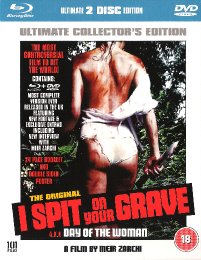
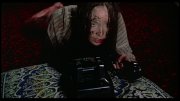

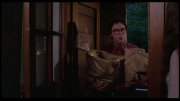



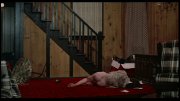

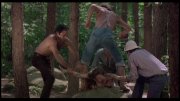
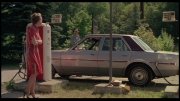
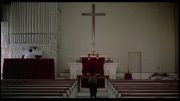

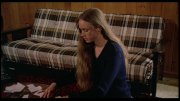
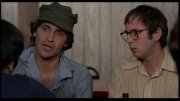









































Your Opinions and Comments
I have a sneaking suspicion that it is a case of reputation over content as there are other films with similarly brutal and hard-hitting rape scenes that have been passed uncut.